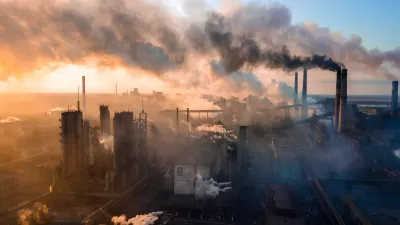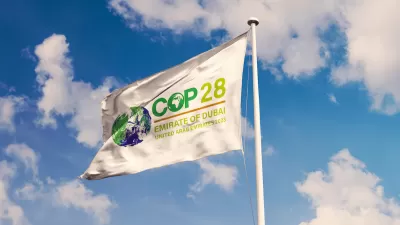Tensions between developed and developing nations surfaced over emissions and energy, with the former focused on reducing fossil fuels and the latter pointing to unrealized emissions reductions from the nations most responsible for global warming.

Representatives from 195 nations gathered in Dubai, the most populous city in the oil-rich United Arab Emirates (UAE), on November 30 to attend the 28th session of the Conference of the Parties (COP 28) to the United Nations Framework Convention on Climate Change (UNFCCC). The meeting will conclude on December 12.
Stacy Meichtry, Paris Bureau Chief of The Wall Street Journal, and Matthew Dalton, a Paris-based climate and energy reporter for the Journal, highlight the “sharp divisions over how quickly governments need to wean their economies off fossil fuels to prevent the planet from blowing past the Paris accord’s temperature targets” on December 1.
The threat of an overheating planet is driving demands from the U.S. and other governments for sharp reductions in fossil-fuel burning. Western officials are calling for a global halt to the construction of coal-burning power plants as they push for the final [global] stocktake to include a call for a “phaseout” of fossil fuels.
Big developing countries such as China, India and Saudi Arabia are expected to resist, saying that poorer nations will need coal, oil and natural gas for decades to power economic growth and provide energy security.
Developing countries also say the U.S., Europe and other wealthy countries haven’t cut their emissions as promised over the past 20 years. They say developed countries bear responsibility for the brunt of emissions that have been pumped into the atmosphere since the dawn of the industrial age.
Those nations have a point. While emissions may have dropped in parts of the developed world, not enough to make a change, reports Shannon Osaka for The Washington Post on December 4.
And while emissions are declining slightly in developed countries, such as the United States and the European Union, they aren’t falling quickly enough. Emissions in the United States are projected to decrease by 3 percent this year — American emissions from coal will drop to levels not seen since the early 1900s — while E.U. emissions will fall by about 7 percent.
Emissions in the U.S. actually increased last year due to Americans' love of driving, according to a November 29 emissions report from the Energy Information Administration.
Overall, U.S. energy-related CO2 emissions increased slightly in 2022 to 4,939 MMmt from 4,905 MMmt in 2021, driven by a 2% increase in transportation sector emissions and a combined 1% increase in the residential and commercial sectors, according to our newly released annual report on energy-related carbon emissions.
The rift between developed and developing nations over emissions and fossil fuels should serve as a reminder that the focus on fossil fuels needs to be not on their production but their consumption, as Samantha Gross, director of Brookings Energy Security and Climate Initiative, recently reported as “the way forward for the climate.”
FULL STORY: Rift Over Fossil Fuels to Dominate COP28

Alabama: Trump Terminates Settlements for Black Communities Harmed By Raw Sewage
Trump deemed the landmark civil rights agreement “illegal DEI and environmental justice policy.”

Planetizen Federal Action Tracker
A weekly monitor of how Trump’s orders and actions are impacting planners and planning in America.

The 120 Year Old Tiny Home Villages That Sheltered San Francisco’s Earthquake Refugees
More than a century ago, San Francisco mobilized to house thousands of residents displaced by the 1906 earthquake. Could their strategy offer a model for the present?

Ken Jennings Launches Transit Web Series
The Jeopardy champ wants you to ride public transit.

BLM To Rescind Public Lands Rule
The change will downgrade conservation, once again putting federal land at risk for mining and other extractive uses.

Indy Neighborhood Group Builds Temporary Multi-Use Path
Community members, aided in part by funding from the city, repurposed a vehicle lane to create a protected bike and pedestrian path for the summer season.
Urban Design for Planners 1: Software Tools
This six-course series explores essential urban design concepts using open source software and equips planners with the tools they need to participate fully in the urban design process.
Planning for Universal Design
Learn the tools for implementing Universal Design in planning regulations.
Clanton & Associates, Inc.
Jessamine County Fiscal Court
Institute for Housing and Urban Development Studies (IHS)
City of Grandview
Harvard GSD Executive Education
Toledo-Lucas County Plan Commissions
Salt Lake City
NYU Wagner Graduate School of Public Service





























